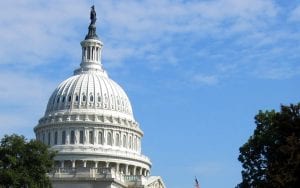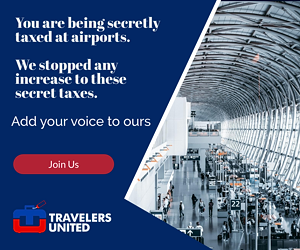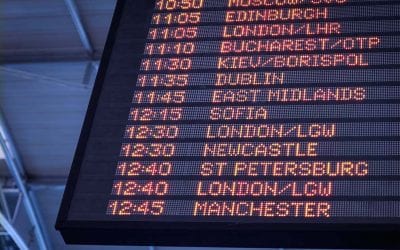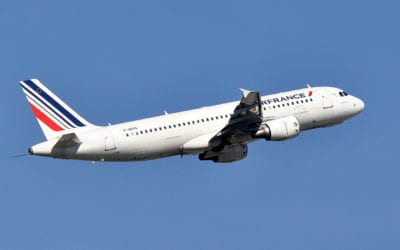DOT refuses passenger protections and openly protects airlines

The most recent mission of the Department of Transportation (DOT) makes it clear. Their mission is to help airlines, not passengers.
Ensure our nation has the safest, most efficient and modern transportation system in the world; that improves the quality of life for all American people and communities, from rural to urban, and increases the productivity and competitiveness of American workers and businesses.
DOT assumes that its reason for being is to help the aviation industry, not passenger protections
The Department of Transportation was established by an act of Congress on October 15, 1966. The Department’s first official day of operation was April 1, 1967. The mission statement was last updated: Wednesday, January 29, 2020. Note that passenger protections, consumers, and the public interest have been ignored. The country clearly needs a reset.
DOT was not created for protection of the airlines but to serve the public interest and ensure safety
If anyone examines the founding documents of the Department of Transportation (DOT) and the deregulation of the airlines through the Airline Deregulation Act (ADA), they will find that the primary mission of DOT should be to serve the public interest and to ensure safety.
The Department of Transportation Act (Public Law 89-670) was created with the missions to “…develop and recommend to the President and the Congress for approval national transportation policies and programs to accomplish these objectives with full and appropriate consideration of the needs of the public, users, carriers, industry, labor, and the national defense.”
READ ALSO:
DOT fines have no teeth. Would a $2 fine deter you?
Cash is king for COVID-19 airfare cancellation refunds
The law establishing DOT focuses on public interest and passenger protections, not airline protection
The introduction of the ADA never mentions airline protection. It focuses on the public interest and safety. For consumers, Public Law 95-504 specifically notes the mission the act incudes:
The availability of a variety of adequate, economic, efficient, and low-price services by air carriers without unjust discriminations, undue preferences or advantages, or unfair or deceptive practices, the need to improve relations among, and coordinate transportation by, air carriers, and the need to encourage fair wages and equitable working conditions.
The placement of maximum reliance on competitive market forces and on actual and potential competition…
The development and maintenance of a sound regulatory environment which is responsive to the needs of the public and in which decisions are reached promptly…
The prevention of unfair, deceptive, predatory, or anti-competitive practices in air transportation, and the avoidance of — “(A) unreasonable industry concentration, excessive market domination, and monopoly power … that would tend to allow one or more air carriers unreasonably to increase prices, reduce services, or exclude competition in air transportation.”
DOT’s mission has been changed, but the law has not

In the last 2018 FAA reauthorization act, Congress added the creation of an official consumer ombudsman to DOT’s structure. It was Congress’s way to attempt to add some consumer power back into DOT. Prior to this the 2012 FAA reauthorization act added the creation of the Advisory Committee for Aviation Consumer Protections. Both of these actions seek to enhance consumer influence in the Department.
DOT is openly hostile to passengers and the public interest — the total lack of enforcement underscores the Department’s attitudes
The two major issues where the public good, DOT’s own regulations, and the intent of Congress have been ignored have been:
- The establishment of rules allowing children between the ages of 3 and 13 years of age to sit with older family members. and
- Enforcement of DOT cash refund rules for airfare and all additional fees when airlines cancel flights.
The family seating rulemaking mandated by Congress to allow young family members to sit with older parents or siblings has been ignored by DOT. The Secretary of Transportation has declared that rulemaking is not necessary. She has openly ignored the will of Congress and recommendations of the FBI.
In the case of enforcement of DOT rules requiring full cash refunds of airfares, ancillary fees, and taxes paid by consumers for airline transportation, there has been no enforcement.
DOT does not even enforce their own regulations
The nation’s Attorneys General are alarmed. More than 40 Attorneys General signed a letter to Congress. Prior to that letter, another letter from the Colorado Attorney General was sent to the Secretary of Transportation. These letters from Attorneys General to Congress and DOT are unprecedented. The Colorado AG letter states (footnotes are in the original letter):
Under USDOT regulations, an airline must refund customers when the airline cancels or significantly changes or delays a flight. As the USDOT reminded airlines in April 2020, the refund requirement does not cease when flight disruptions are caused by factors outside of the carrier’s control…
[The Frontier Airlines contract of carriage] contravenes the USDOT position that the “longstanding obligation of carriers to provide refunds for flights that carriers cancel or significantly delay does not cease when the flight disruptions are outside of the carrier’s control (e.g., a result of government restrictions)” and, therefore, “any contract of carriage provision or airline policy that purports to deny refunds to passengers when the carrier cancels a flight, makes a significant schedule change, or significantly delays a flight to be a violation of the carriers’ obligation that could subject the carrier to enforcement action.”
Here are more ways that DOT is failing to protect the public during the current administration.
- Refunds of checked baggage fees when baggage is delivered late
- Validation of aircraft emergency evacuation capabilities
- Delayed decisions on properly filed consumer complaints
It is time to help the American public and make the public interest a priority for DOT. Perhaps by allowing State Attorneys General consumer protection powers, consumers can regain judicial rights no longer provided by DOT.

Charlie Leocha is the President of Travelers United. He has been working in Washington, DC, for the past 14 years with Congress, the Department of Transportation, and industry stakeholders on travel issues. He was the first consumer representative to the Advisory Committee for Aviation Consumer Protections appointed by the Secretary of Transportation from 2012 through 2018.



